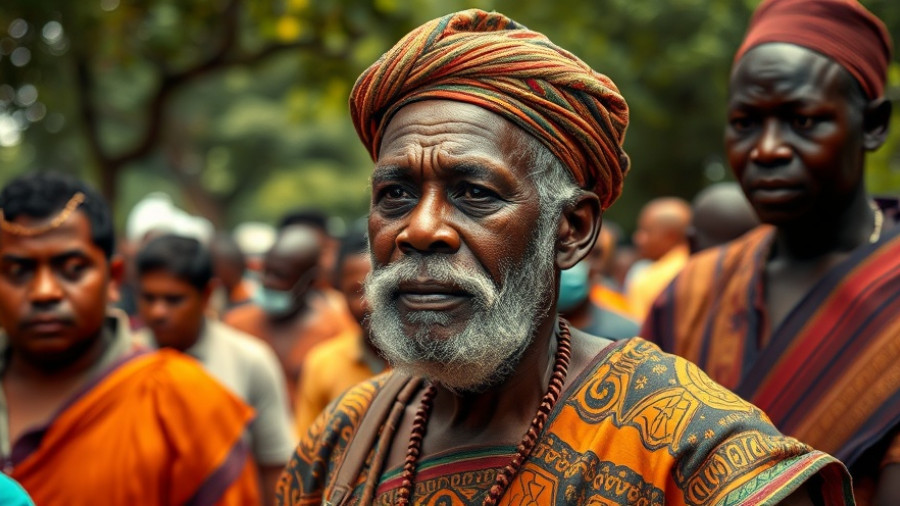
A Pivotal Moment in Cameroonian Politics
The recent elections in Cameroon have reached a critical juncture, as the country awaits the final results following a controversial voting period. The dismissing of all petitions against the election by Cameroon's top court paves the way for definitive outcomes, but the tensions swirling around these developments suggest that this is far from a straightforward conclusion.
In 'Cameroon vote results imminent as Tchiroma insists he won', the discussion dives into the political aftermath of the recent elections, exploring key insights that sparked deeper analysis on our end.
Isaach's Stand Against the Status Quo
Isaach Tchiroma, a prominent candidate in the elections, has galvanized support with a fervent declaration that he has secured victory despite preliminary results indicating that incumbent President Paul Biya holds the lead. Tchiroma has appealed to the collective consciousness of Cameroonians, imploring them to unite in peaceful protest against what he labels an attempted theft of their electoral rights. This rallying cry resonates deeply in a nation that has long grappled with the specter of political oppression.
A Call to Peace and Unity
In a profound statement, Tchiroma has called upon citizens from all corners—north to south, east to west, and in the diaspora—to unite in love and respect for their homeland. This message highlights an inherent desire for transformation—a collective yearning characterized by a peace-driven determination. His rhetoric not only aims to secure loyalty among his supporters but seeks to evoke a broader national consciousness surrounding the value of democracy and the urge for governmental accountability.
Assessing the Implications of the Court’s Decision
The decision by the Constitutional Council, which is characterized by finality—non-appealable choices—raises questions about the transparency and fairness of the electoral process in Cameroon. The implications of such a ruling could shape the political landscape for years to come. Citizens are rightfully concerned about protecting their liberties and the integrity of their elections, especially when autocratic tendencies persist under the current regime.
The Role of Political Accountability in African Elections
Throughout Africa, the call for accountability in governance remains paramount, especially when public trust in electoral systems is inherently fragile. This event in Cameroon is emblematic of a broader struggle across the continent, depicting the dichotomy between established power and the aspirations of the populace for democratic integrity. It prompts a necessary discourse on what accountability entails in a political context constantly marred by controversies and allegations of corruption.
Choosing Peace Over Chaos: The Path Forward
Despite the turbulence surrounding the elections, Tchiroma’s insistence on peace signifies the potential for constructive engagement rather than violent resistance. It suggests an emerging political culture that values dialogue and coexistence over chaos. As Cameroonians navigate this challenging phase of their history, fostering an environment for civil discourse and burnished democracy will be vital for sustainable governance.
Historical Context: A Nation Divided
Cameroon has a complex history marked by colonial rule, divisions between linguistic groups, and ongoing calls for federalism. These historical factors contribute to the current polarized political climate, framing the 2023 elections as not merely a political contest but as a fight for the soul of the nation. The consequences of this electoral cycle resonate deeply across societal lines—underscoring the urgency for a cohesive national identity.
Concluding Thoughts: A Moment of Reckoning
The political developments in Cameroon serve as a reminder of the fragility of democratic institutions in many African nations. As citizens await the final election results with bated breath, the overarching challenge remains: How can the people secure their voices and propel their country toward a more just and equitable future? Remaining engaged and informed is central to navigating the complex political reality, and Cameroonians are at a pivotal crossroad.
As we reflect on these outcomes, there’s a compelling call to rally behind the fight for accountability and transparency within governance. It’s a moment where the people can demand better—fueling a movement for peace and reform across the nation.
 Add Row
Add Row  Add
Add 




Write A Comment